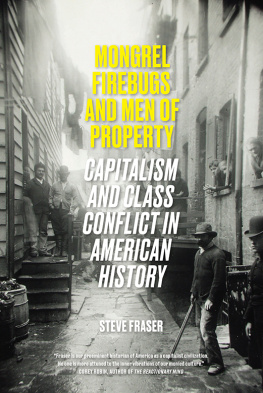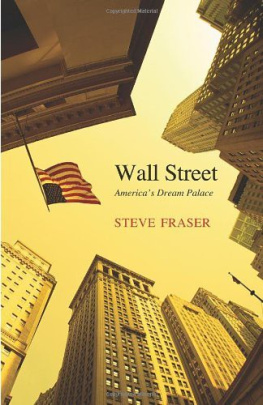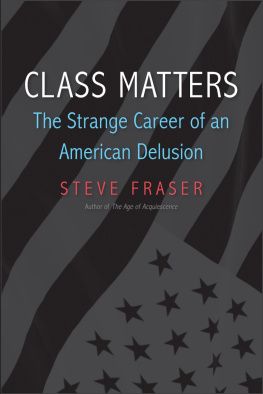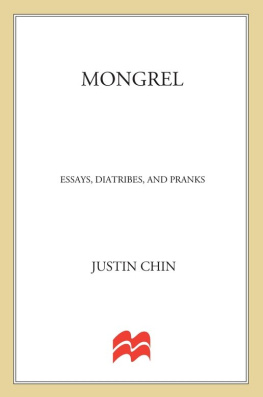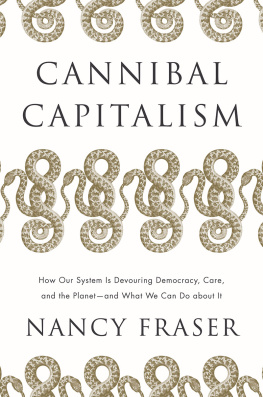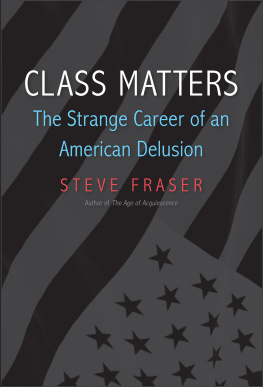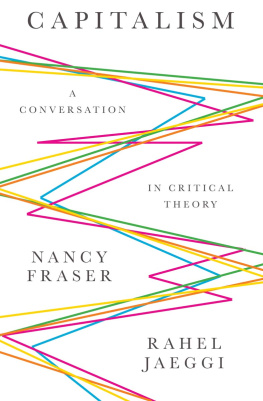Steve Fraser - Mongrel Firebugs and Men of Property - Capitalism and Class Conflict in American History
Here you can read online Steve Fraser - Mongrel Firebugs and Men of Property - Capitalism and Class Conflict in American History full text of the book (entire story) in english for free. Download pdf and epub, get meaning, cover and reviews about this ebook. year: 0, publisher: Verso, genre: Politics. Description of the work, (preface) as well as reviews are available. Best literature library LitArk.com created for fans of good reading and offers a wide selection of genres:
Romance novel
Science fiction
Adventure
Detective
Science
History
Home and family
Prose
Art
Politics
Computer
Non-fiction
Religion
Business
Children
Humor
Choose a favorite category and find really read worthwhile books. Enjoy immersion in the world of imagination, feel the emotions of the characters or learn something new for yourself, make an fascinating discovery.
- Book:Mongrel Firebugs and Men of Property - Capitalism and Class Conflict in American History
- Author:
- Publisher:Verso
- Genre:
- Year:0
- Rating:5 / 5
- Favourites:Add to favourites
- Your mark:
- 100
- 1
- 2
- 3
- 4
- 5
Mongrel Firebugs and Men of Property - Capitalism and Class Conflict in American History: summary, description and annotation
We offer to read an annotation, description, summary or preface (depends on what the author of the book "Mongrel Firebugs and Men of Property - Capitalism and Class Conflict in American History" wrote himself). If you haven't found the necessary information about the book — write in the comments, we will try to find it.
Mongrel Firebugs and Men of Property - Capitalism and Class Conflict in American History — read online for free the complete book (whole text) full work
Below is the text of the book, divided by pages. System saving the place of the last page read, allows you to conveniently read the book "Mongrel Firebugs and Men of Property - Capitalism and Class Conflict in American History" online for free, without having to search again every time where you left off. Put a bookmark, and you can go to the page where you finished reading at any time.
Font size:
Interval:
Bookmark:

and Men of Property
Men of Property
Capitalism and Class Conflict
in American History
Steve Fraser

First published by Verso 2019
Steve Fraser 2019
All rights reserved
The moral rights of the author have been asserted
1 3 5 7 9 10 8 6 4 2
Verso
UK: 6 Meard Street, London W1F 0EG
US: 20 Jay Street, Suite 1010, Brooklyn, NY 11201
versobooks.com
Verso is the imprint of New Left Books
ISBN-13: 978-1-78873-670-1
ISBN-13: 978-1-78873-671-8 (UK EBK)
ISBN-13: 978-1-78873-672-5 (US EBK)
British Library Cataloguing in Publication Data
A catalogue record for this book is available from the British Library
Library of Congress Cataloging-in-Publication Data
Names: Fraser, Steve, 1945- author.
Title: Mongrel firebugs and men of property : capitalism and class conflict in American history / Steve Fraser.
Description: London ; Brooklyn, NY : Verso, 2019.
Identifiers: LCCN 2019010273| ISBN 9781788736701 (pbk. : alk. paper) | ISBN 9781788736725 (US ebk.) | ISBN 9781788736718 (UK ebk.)
Subjects: LCSH: CapitalismPolitical aspectsUnited StatesHistory. | Social classesUnited StatesHistory. | Social stratificationUnited StatesHistory. | United StatesEconomic conditions. | United StatesSocial conditions. | United StatesHistory.
Classification: LCC HC110.C3 F73 2019 | DDC 330.973dc23
LC record available at https://lccn.loc.gov/2019010273
Typeset in Sabon LT by Hewer Text UK Ltd, Edinburgh
Printed and bound by CPI Group (UK) Ltd, Croydon, CR0 4YY
I want to thank the editors of Salmagundi, TomDispatch, Raritan, Salon, and the International Journal of Labour Research, where many of these essays first appeared. Two of the essays were co-written with Joshua Freeman, for whose collaboration Im grateful. Ben Mabie, Sarah Grey, Duncan Ranslem, and Jacob Stevens helped shepherd this project through Verso; thanks to all. The essays were written over a period of more than fifteen years, during which time they benefited from the advice of friends and a host of historians without whose work my own efforts would have been fruitless. I want to especially thank Paul Milkman, Rochelle Gurstein, and Corey Robin. My debt to my family is immeasurable.
Liberty produces wealth and that wealth destroys liberty. So said Henry Demarest Lloyd, widely read critic of Americas newly risen plutocracy and leader of the antitrust movement during the countrys first Gilded Age. The essays gathered together here comprise some evidence for the second half of that equation. Living in the age of the 1 percent and the 99 percent makes it even easier to detect its fundamental truth.
But it is the first element of that social mathematics which, more often than not, has epitomized the American mythos and anesthetized sensitivity to the grievous economic and political costs of capital accumulation. We are, after all, reputed to live in the land of the free, where that freedom has nourished a fabled cornucopia. So it is also the case that these essays are attempts to bring to the surface realities about the historical evolution of the country that its dedication to the liberty to accumulate have obscured or interred entirely.
Stories about what we now call the homeland, its origins and unfolding, do not, conventionally, feature capitalism. Other tales about the countrys history usually take priority. Favorites include, perhaps first and foremost, the New World as the incubator of liberty and democracy in the Western world. Others emphasize the nations embrace of people from a global everywhere, America as the nation of nations. Another is heroic and tracks the conquest of frontiers, both physical and spiritual, a legendary odyssey requiring fortitude and audacity. Organically tied to that one is the apotheosis of America as the land of entrepreneurial genius, derring-do risk-taking, a business civilization resting on a human landscape of indigenous inventiveness. The last tale does indeed spill over into a celebration of capitalism, but less as a form of political economy, more as an epiphany of the self-made man, cleansed of the social abrasions that real capitalism inevitably trails in its wake.
All of these accounts carry their own truths. There is little question but that the country was in the vanguard of certain democratic forms and practices and that it incubated notions of civil liberties. Huddled masses did indeed flock here, and, no matter the various reasons they did so, their presence imparted a distinctive cosmopolitanism to the countrys self-conception. Despite the presence of native peoples inhabiting societies ten thousand years old, there is too a truth to the flattering self-fascination with Americans as pathfinders, triumphing over all natural or man-made impediments. And it is a self-evident form of national narcissism that we the people have been astonishingly good, almost preternaturally gifted when it comes to entrepreneurial esprit.
No doubt, all of these accounts tend to leave out their more mordant undersides: the selective distribution of liberty and democracy and the frequent instances of their undermining; the chronic stigmatizing, stereotyping, and exclusion of the huddled masses; the pathfinder as exploiter, expropriator, and exterminator; the numbingly frequent collapses of entrepreneurial phantasms dragging down along with them lives and livelihoods; and the tithing of human labor and the insults to the human dignity of those legions who labored in the vineyards to make American capitalism the extraordinary world power it became.
Nonetheless, even those versions of these origin myths that allow for these taints and complaints retain a certain traction. Moreover, they all can be subsumed under the rubric of American exceptionalism. Its the story that functions as the meta-tale, the one that exempts the New World from the social antagonisms that had for centuries disfigured European civilizationthe Old Worldfrom which our freethinkers and freebooters, our instinctive democrats and immigrant refugees, our frontiersmen and adventurers were in flight. This was, and remains, a utopian fantasy, embedded in the heart of the heartland. Here social hierarchies and the fatal confrontations they inevitably fostered would go to die, liquidated by the boundless prospects of self-advancement that a continental abundance of land and natural resources made possible.
If capitalism figures in at all, it is to forefront opportunity, entrepreneurial vigor, material abundance, and the seven-league boots of manifest destiny. Conflict may rear its unseemly face but only episodically, as a kind of alien or aberrant detour off the main road of Americas exceptional career through the world. Instances of serious social discord, when they draw notice, get transcended, a course correction allowing the utopian project to resume.
The essays collected here work instead to raise the profile of capitalism in the national saga. Explicitly or by inference, they all challenge the consoling fantasy of American exceptionalism. They presume conflict. And by their nature they challenge the national framework which American exceptionalism inherently assumes. That is to say, the one nation so precious to the exceptionalism romance is seen here to be recurrently splitting into two nations, or if not nations, then two or more social species which speak to each otheror fail to speak to each otheracross a great divide and which every now and then threaten to rip wide open the fragile fabric of the national conceit. On the one hand, there is the democratic or egalitarian boast; on the other, there is the capitalist reality.
Font size:
Interval:
Bookmark:
Similar books «Mongrel Firebugs and Men of Property - Capitalism and Class Conflict in American History»
Look at similar books to Mongrel Firebugs and Men of Property - Capitalism and Class Conflict in American History. We have selected literature similar in name and meaning in the hope of providing readers with more options to find new, interesting, not yet read works.
Discussion, reviews of the book Mongrel Firebugs and Men of Property - Capitalism and Class Conflict in American History and just readers' own opinions. Leave your comments, write what you think about the work, its meaning or the main characters. Specify what exactly you liked and what you didn't like, and why you think so.

